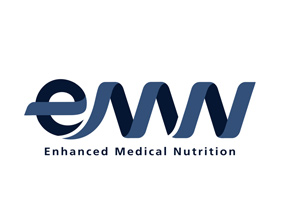Gut health and the human microbiome are trending topics in health and wellness circles. But what exactly is all the buzz about It turns out, the old adage, you are what you eat is more accurate than ever, especially considering your diet is also the foundation for culturing a microbial ecosystem in your gut that affects weight, disease, and perhaps even your mood.
Research surrounding the human gut and microbiome is at the forefront of current scientific inquiry. The human microbiome, or the gut ecosystem, is comprised of more than 100 trillion microorganisms, both healthy and unhealthy, that assist many human processes. As more extensive clinical trials are conducted and innovative research is published, the intricate connections between the human gut, performance, and disease are becoming more apparent and robust.
Diet has a direct impact on the quality of gut microbiota, which in turn affects metabolic processes and overall health. An unhealthy gut microbiome has been associated with irritable bowel disease, skin disorders such as acne and atopy, Type 2 Diabetes, cardiovascular disease, rheumatoid arthritis (RA), and obesity.1
Currently, the U.S. has an obesity prevalence of 42.4 percent, making it one of the most obese populations globally. Copious research has linked obesity to health issues such as high blood pressure, high cholesterol, diabetes, and cardiac disease. But interestingly, obesity has also been found to worsen the symptoms of rheumatoid arthritis (RA), an autoimmune disorder that inflames joints, causing severe pain and discomfort. The increased weight placed on joints may aggravate the condition, as every additional 10 pounds of weight results in approximately 30-60 pounds of excessive force placed on the knees with each step.2
So, how does the human microbiome impact obesity and RA One of the human microbiome’s most critical functions is to maintain and proliferate autoimmune responses.3 Patients with RA have been found to have dysbosis of microbiota5, meaning their microbiome lacks diversity and does not contain beneficial bacteria such as Bacteroides and Firmicutes, which in turn are replaced with pathogenic bacteria such as Prevotella copri4. Prevotella copri is the most commonly found pathogenic bacteria inhabiting individuals with RA, suggesting it contributes to the onset and proliferation of RA. Similarly, obese individuals have been found to have a non-diverse, pathogenic microbiome.
The interconnections between the human microbiome, obesity, and rheumatoid arthritis suggest that cleaning up the microbiome could pay long-term dividends. To create and maintain a healthy microbiome, individuals are encouraged to eat a nutrient dense, low-trans/saturated fat, probiotic-rich diet and exercise regularly. This diet includes fruits, vegetables, lean protein, and a large amount of prebiotic and probiotic foods, like yogurt, kefir, and sauerkraut. Making this lifestyle change can not only result in weight loss, but may also create a richer microbiome and potentially relieve the symptoms of RA by alleviating the force placed on joints and eliciting a greater immune response from the strengthened microbiota.
As it turns out, all the hype about gut health and the human microbiome is based on science. Increasingly, research demonstrates strong connections between gut microbiota and immune responses, metabolic processes, and disease. Enriching your microbiome through exercise and healthy eating may provide a holistic and natural remedy for many health issues.
Authored by Zach Meeker, Research Assistant for Midwest Orthopaedics at Rush University Medical Center.
References:
- Durack J, Lynch SV. The gut microbiome: Relationships with disease and opportunities for therapy. J Exp Med. 2019 Jan 7;216(1):20-40. doi: 10.1084/jem.20180448. Epub 2018 Oct 15. PMID: 30322864; PMCID: PMC6314516.
- Role of Body Weight in Osteoarthritis. Johns Hopkins Arthritis Center.
- Belkaid Y, Hand TW. Role of the microbiota in immunity and inflammation. Cell. 2014 Mar 27;157(1):121-41. doi: 10.1016/j.cell.2014.03.011. PMID: 24679531; PMCID: PMC4056765.
- Bodkhe R, Balakrishnan B, Taneja V. The role of microbiome in rheumatoid arthritis treatment. Ther Adv Musculoskelet Dis. 2019 Jul 30;11:1759720X19844632. doi: 10.1177/1759720X19844632. PMID: 31431810; PMCID: PMC6685117.
- Chen J, Wright K, Davis JM, Jeraldo P, Marietta EV, Murray J, Nelson H, Matteson EL, Taneja V. An expansion of rare lineage intestinal microbes characterizes rheumatoid arthritis. Genome Med. 2016 Apr 21;8(1):43. doi: 10.1186/s13073-016-0299-7. PMID: 27102666; PMCID: PMC4840970.
Click here for full podcast playlist.














